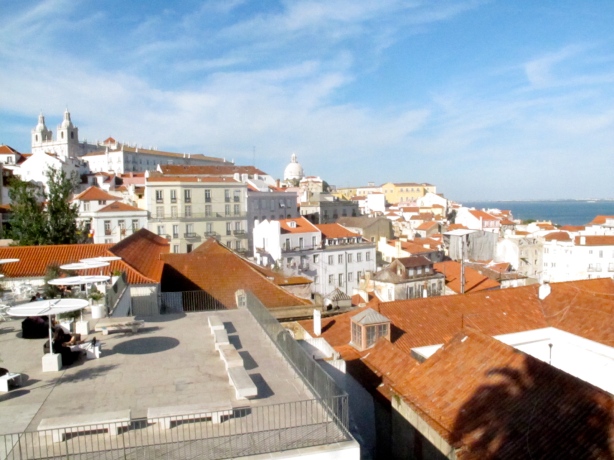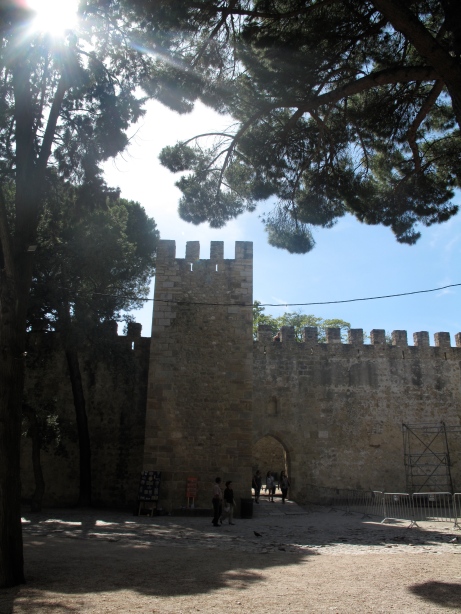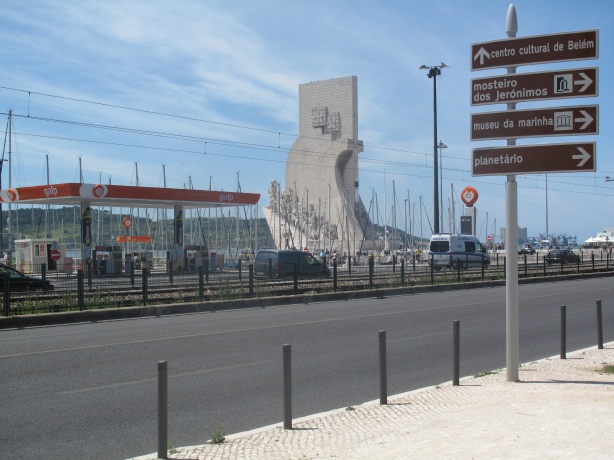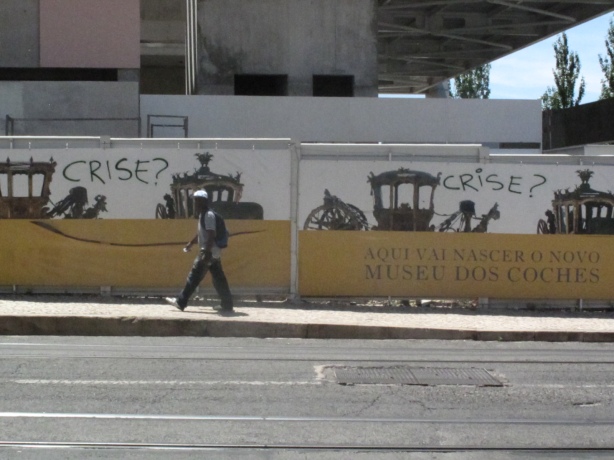Arriving in sunny Lisbon and slowly making my way to my accommodation, I suddenly felt a wave of calm and total relaxation, content with the sense that, at that moment in time, the world was my oyster. The possibilities which before had seemed daunting and frightening suddenly became expansive and liberating. I set out on my own, into the wild unknown, following my instincts and my whims, and completely unhindered by incompatible travel mates, other people’s hunger pangs, or the touristic drive for ‘entertainment’ and ‘sight collecting’.
My experience of travelling alone was one of transforming from a tourist into a nomad. Sitting in the shady nooks and crannies of Lisbon’s Castelo de São Jorge lazily watching the local clown troupes practice their moves, I giggled at the tourists who were marching through the grounds like soldiers on a mission. Taking the tram to Belém – headphones in, no fixed time schedule, and a look of insouciance on my face – I exchanged sympathetic glances with old Portuguese couples who were shooting daggers at the gaggles of loud, sunburned tourists clogging the ticket machines and loudly complaining about how they didn’t give change. I felt, for the first time, a sense of ‘me versus them’ and a desire to get away from the tourists, to detach myself from time, to blend in and to observe.
It was also a profoundly social experience. Instead of dining alone, feeling like a stranded child at a roadside diner, everywhere I went people came up to me and offered to keep me company, show me around, or simply check in to see that I was okay. I met a local tapas/wine bar owner who on my first day took me on a several-hour walking tour of Lisbon and its bars, ending at the gallery opening of Jose Saramago’s neice.
We exchanged life stories and he explained life in Lisbon to me, including how he and his wife have felt the effects of the economic crisis on their business and their lifestyle. The waiter at a riverside café started up a casual conversation and asked if I needed any company. He taught me how to say a few token Portuguese phrases and introduced me to strawberry caiprioskas. I’m sure that this experience is slightly different or at least easier for a young woman than for male or older travelers, with many more unsolicited approaches from men of various guises, but I have a feeling that solo travelers of all stripes will find it much easier to fraternise with the locals than if they had been in groups or even couples.
Finally, travelling alone opened my eyes like never before. At the risk of sounding like an utter cliché, when you remove the distractions, the safety net and the constant chatter that comes with travel companions, you tend to ponder more on the background and texture of the city you are in, and begin to see what ‘real’ life might be like. Insead of seeing only the beautiful monuments and picturesque vistas, the decrepit and empty buildings also begin to come to light (my newfound local friend informed me that 40% of the downtown buildings are currently empty).
You notice the graffiti everywhere decrying the economic situation in a country which is on the brink of ruin: ‘CRISE’ (crisis) was scrawled 6 or 7 times across a paste-up advertisement for the museum of coaches, contrasting the old world opulence of Portugal at its imperial peak with the destitution and decrepitude which is slowly enveloping the city. You remark on the repetitious ‘aviso’ eviction notices slapped on numerous empty shells of buildings that were lived in once-upon-a-time, spray-painted angrily with the call to action: “Aqui Poder Viver Gente” (“People could be living here“). Walking to the well-known Padrao dos Descobrimentos (Discovery Monument), I was struck by its slightly derelict setting, plonked as it is in the middle of a highway, backdropped by a gas station and fishermen trying to catch their dinner, and surrounded by broken, boarded buildings sprouting weeds (albeit in equal measure as swanky cocktail bars overflowing with tourists and well-to-do locals).
Despite this picture I paint of a quiet, laid-back, economically broken city well past its heyday, traveling alone allowed me to revel at length in Lisbon’s slow pace and slightly bohemian vibe, and my final impression is that of a stunningly beautiful place that will stay close to my heart long after hitting the tarmac and returning to real life. The fantastic seafood, the street parties and celebratory atmosphere, the incredible hospitality and warmth of the people, the quaint cobblestones and colourful tiles, and the simple sense of space and time that is afforded in a city that is not crawling with tourists, combine to make Lisbon a more-than-memorable experience, and a city I will most certainly return to. It has inspired in me a thirst for solo travel and I have a feeling that there is plenty more where that came from.

Jessica Sinclair is a freelance writer, travel nut, international affairs specialist, and enthusiast for all things global. Having grown up in New Zealand, England, Borneo and Australia, and with family scattered across the globe, Jessica developed from her youngest years an in-built sense of wanderlust and a desire to see more of the world.
During and on completion of her Master of International Studies in Geneva, Switzerland, Jessica has continued to wander the globe for inspiration and edification, in amongst working on project development for non-profit organisations in developing countries. Her stories and articles attempt to bring cultural understanding and unique ‘insider’ angles to the places she visits, and to broader musings for the seasoned voyager, burrowing to the core of what it really means to travel.























